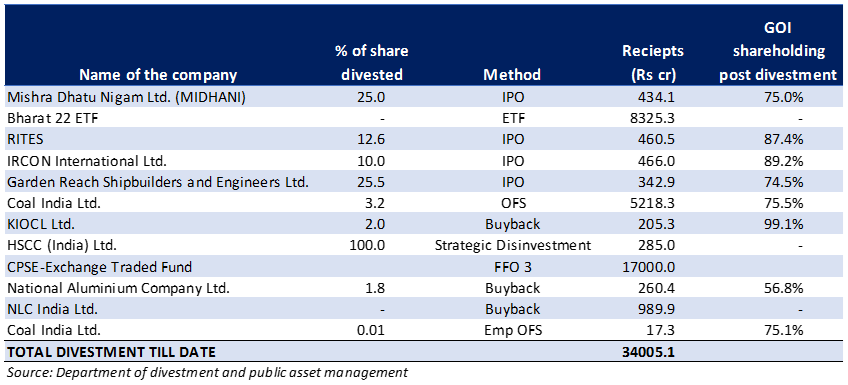



Ruchi Agrawal
Moneycontrol Research
Stocks of Indian Oil Corporation (IOCL) and Oil and Natural Gas Corporation (ONGC) rose 4-5 percent on Friday after announcements of share buybacks by both companies.
While IOCL has confirmed a buyback and a heavy dividend payout, ONGC's board of directors is scheduled to meet on December 20 to decide on the proposal.
After the failure of some strategic share sales (like that of Air India) due to various reasons, the buyback route is being seen as a tool for the government to meet its annual divestment target.
Despite reluctance from oil companies, owing to their scheduled capital expenditure plans, the government seems to have had its way. In the near term, this could be a positive for minority shareholders.
Details of the buyback
IOCL's board approved a buyback of 29.76 crore equity shares, approximately 3.06 percent of the total paid up equity share capital of the company, at Rs 149 per share, which is an 8 percent premium to Thursday’s closing price.
At the given price, the size of the buyback comes to Rs 4,435 crore. The board of directors also declared an interim dividend of Rs 6.75 per share for FY19. The record date for the buyback and dividend has been fixed at December 25.
ONGC's buyback has not been confirmed as yet, but is expected to be around Rs 4,800 crore in size.
The government’s side

Amid rising oil prices, a depreciating rupee and planned investment expenditure, the government’s fiscal position has been strained. The proposed buyback will help it achieve its divestment target for this year.
While the government has the option to sell stake in these companies, a buyback seems a safer option through which it could get more than the prevalent market price for the stake, given the waning investor interest in oil companies because of increased uncertainty.
The government owns a 54.06 percent stake in IOCL, which means its proposed buyback could earn around Rs 5,941 crore for it. Along with this, there would be revenue receipts from the dividend distribution tax of around Rs 1,353 crore.
What it means for the companies
IOCL’s total cash and liquid investments amount to around Rs 41,544 crore (as on March 31, 2018). The buyback and divided payout are expected to cost the company around Rs 12,344 crore, which is around 30 percent of its liquid position.
Along with this, IOCL has a planned capital expenditure of around Rs 23,000 crore for the current fiscal year, of which Rs 7,600 crore is still in the pipeline.
ONGC has the required free cash to fund its share buyback. However, it does seem a bit hefty, amounting to around 42 percent of its total cash and liquid investments.
While both companies have enough liquidity to fund their buybacks, the added expense might tighten their belts with regard to the capex they have planned. IOCL has a planned capex of Rs 23,000 crore for FY19, while ONGC has a planned capex of around Rs 38,000 crore.
Outlook
We believe that while both companies have enough liquidity to fund their buybacks and their capital expenditures, it might put them in a tough spot. The altered balance sheet position may come in the way of future growth.
Oil companies have already been under pressure because of the contingent burden of subsidy sharing when crude oil prices were rising, and the buyback could further weaken these companies' position.
Rising crude oil prices had brought profit margins of both upstream oil companies and oil marketing companies (OMC) under the scanner.
While on the one hand public outrage has led to shrinking margins for OMCs, on the other, it has exposed upstream oil PSUs to probable subsidy sharing and policy burden from the government.
At a time when these companies are this operationally-strained, the buyback would mean an added expense for them.
However, the buyback would surely help the government iron out its stressed fiscal position and meet its divestment target for this year.
For more research articles, visit our Moneycontrol Research Page.
Discover the latest Business News, Sensex, and Nifty updates. Obtain Personal Finance insights, tax queries, and expert opinions on Moneycontrol or download the Moneycontrol App to stay updated!